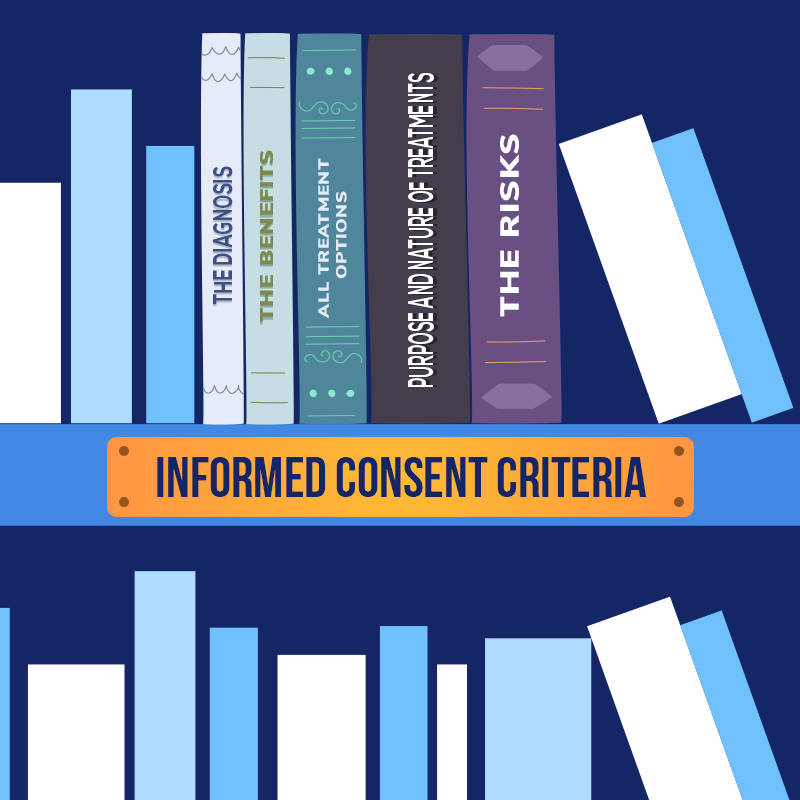
“Will signing a waiver impact your Illinois medical malpractice case?” is a common question. While a waiver may prevent you from filing a claim against medical professionals and hospitals for expected risks and complications, it may not impact your medical malpractice case if you didn’t provide informed consent, a healthcare provider exhibited gross negligence, or the waiver is unenforceable under Illinois law. Signing a waiver implies acknowledging your treatment’s known risks, but it doesn’t mean you agreed to receive treatment below the expected standard of care that healthcare providers owe to their patients.
Before a medical procedure, it’s common for hospitals or medical institutions to hand you a liability waiver. This legal document informs prospective patients about the benefits, inherent risks, and potential consequences of a particular medical procedure. A doctor or nurse is likely to take you through the potential risks. After that, you sign the form to confirm that you’ve understood the possible risks of the treatment and are giving your permission for the medical providers to proceed despite the risks.
A medical waiver protects doctors, nurses, and the hospital from lawsuits if something goes wrong that’s beyond their control and is considered to be reasonably expected from the procedure. For example, bleeding is an inherent risk during surgical procedures.
When you sue a healthcare professional after signing a waiver, he or she may use the assumption of risk defense. A waiver is one form of express assumption of risk, which means you clearly expressed your knowledge of the risks associated with the medical procedure. Under the assumption of risk doctrine, the defendant won’t be responsible for injuries you sustained after voluntarily exposing yourself to the risky situation.
In many cases, people can’t take legal action against healthcare providers after signing a waiver prior to their medical treatment. However, that isn’t always the case. There are certain situations where you can file a medical malpractice claim to recover compensation despite signing a waiver. The answer to the question “will signing a medical waiver impact your Illinois medical malpractice case” is “Not necessarily” in the following situations.
In Illinois, waivers aren’t automatically enforceable. Signing a waiver doesn’t mean it’s enforceable, even if you agreed to its terms when you signed it.
A key requirement for a liability waiver to be enforceable in Illinois is its language should be clear, concise, and explicit. The waiver you signed may not have met this requirement. For example, it may be too short to outline the detailed risks covered, excessively long and full of technical language, or use ambiguous language that’s incomprehensible to the average patient. In such cases, Illinois courts are likely to find the waiver unenforceable.
A waiver may also fail to be enforceable if a minor or his or her parent signs the waiver. A mistake or misrepresentation of facts in the waiver may also make it unenforceable.
You can file a medical malpractice lawsuit if your signed waiver isn’t enforceable.

A waiver doesn’t guarantee informed consent. You could sue a medical professional for medical malpractice if he or she didn’t provide you with an opportunity to give informed consent. The waiver you signed may be enforceable but fail to include a well-known risk in the list of a particular treatment’s potential risks. If you suffer a complication due to the risk that wasn’t included, you can claim you didn’t give your informed consent and take legal action.
Even if a healthcare provider gives you a waiver to sign, he or she should fully explain the risks to you and the procedure’s alternatives. If you signed the waiver but weren’t provided with adequate information regarding your treatment and suffered injuries, you could argue that your consent was uninformed and have grounds for a medical malpractice claim.
A medical professional or facility shouldn’t obtain your consent by tricking, pressuring, or forcing you into accepting the treatment and signing a waiver. You also shouldn’t sign the form if you have limited mental capacity at the time of signing. If you weren’t given a chance to use your free will to sign the waiver or weren’t mentally competent to understand and sign the document, you could file a claim based on a lack of informed consent.
A medical malpractice attorney will help you determine whether a medical professional or institution didn’t obtain proper informed consent.
Even when you have provided informed consent, medical providers have a legal obligation to provide a level of care that meets the medical community’s accepted standards. A waiver doesn’t excuse a provider’s wrongdoing. It doesn’t protect a medical practitioner or institution from harm resulting from negligence.
Gross negligence happens when a medical professional acts in a reckless manner that wouldn’t have occurred under another professional with the same training, education, and experience in the same circumstances. Acts of gross negligence include:
There are procedures that healthcare providers should follow to avoid such errors. You can sue after signing a waiver if a healthcare provider deviates from the applicable standard of care and fails to follow the proper procedures, resulting in you suffering preventable harm.